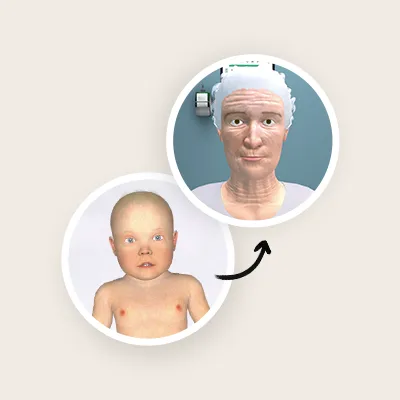The Importance of Training Multidisciplinary Teams in Healthcare
Working effectively in multidisciplinary teams is paramount in today’s complex healthcare environment. Integrating various healthcare professionals, each with specialized skills and knowledge, ensures comprehensive patient care, improves outcomes, and enhances patient satisfaction.
Robust training programs for multidisciplinary teams are essential to achieving this level of synergy. One of the most effective ways to train these teams is through simulation, and the Body Interact virtual patient simulator stands out as an excellent tool in this regard.
The Significance of Multidisciplinary Teams in Healthcare
Multidisciplinary teams in healthcare bring together professionals from various specialties, including doctors, nurses, pharmacists, therapists, and social workers, to provide holistic care. This collaborative approach addresses multiple facets of patient care simultaneously, leading to:
Improved Patient Outcomes: Different perspectives lead to more comprehensive care plans, reducing the risk of oversight and improving overall patient health.
Enhanced Communication: Regular interaction among team members fosters better communication, reducing the likelihood of errors and improving care coordination.
Efficient Resource Utilization: Collaborative efforts ensure that resources are used effectively, reducing duplication of services and optimizing patient care pathways.
Professional Development: Team members learn from each other, gaining insights into different aspects of patient care that enhance their professional growth.

Simulation-based training in Multidisciplinary Teams
Simulation-based training has become a cornerstone in preparing healthcare teams for real-world challenges. The simulation improved participants’ understanding and confidence and reduced discussion barriers.
Realistic Scenarios: A safe environment to practice handling complex and high-stakes situations without the risk of harming actual patients.
Immediate Feedback: Participants receive instant feedback on their performance, allowing them to learn and adjust their approach in real-time.
Interdisciplinary Collaboration: Simulation exercises mimic real-life team interactions, helping team members understand each other’s roles, improve communication, and build trust.
Skill Reinforcement: Regular training sessions help reinforce technical and non-technical skills, such as critical thinking, decision-making, and teamwork.
Performance Assessment: Objectively assess the performance of individuals and teams, identifying areas for improvement and tracking progress over time.
Team-Based training with virtual patient scenarios
The importance of training multidisciplinary teams in healthcare cannot be overstated. Effective collaboration among healthcare professionals leads to better patient outcomes, enhanced communication, and efficient resource use. Plus ensures patient safety while improving clinical and non-clinical skills, consolidating knowledge, or even learning about new guidelines implemented recently.
Body Interact offers a powerful way to prepare these teams for real-world healthcare challenges. By integrating Body Interact into their training programs, healthcare institutions can ensure their teams are well-equipped to deliver high-quality and coordinated care, ultimately improving the health and well-being of their patients.

As a virtual platform, it is accessible from anywhere. It provides flexible training options that can be tailored to the needs of different teams and institutions.
Curious to learn more?
By Ana Santa – MSN, APRN









